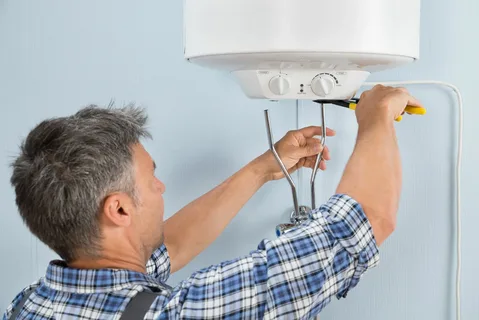Hackers often focus their attention on websites that are powered by WordPress for a variety of reasons, including taking advantage of the website’s resources, gaining access to the data stored there, and leveraging the website to lure users into falling for phishing schemes, amongst other activities. But can you take any action to change the situation? Yes. You have the ability to take steps that will help you secure a WordPress website from these criminal actors and safeguard both your visitors and their data.
Below is a rundown of the 8 WordPress security best practices that, in our experience, have shown themselves to be the most useful. When it comes to the safety of websites, it has been shown that these precautions make a difference.
Table of Contents
1. Make Sure You Have Strict Password Requirements
One of the most prevalent causes of websites being hacked is the use of easy-to-crack passwords. It is an issue that can be readily resolved, so finding a solution to it ought to be a top priority. Strong password rules are absolutely necessary if you want to exclude the possibility that the passwords you use on your WordPress site were the cause of the site being hacked.
Create a secure password by combining uppercase and lowercase characters, numbers, and symbols, along with any appropriate punctuation. If you want to create and remember secure passwords, you should use a password manager. Implementing secure passwords for all users requires the deployment of a plugin that manages password policies. Make sure that all of your passwords are kept up to date.
2. Login Attempts Should Be Limited
After you’ve improved the security of your login credentials, restrict the number of times a user may attempt to log in. This is a good defense mechanism against brute force attempts to access your site. A plugin may be used to limit login attempts; after a few unsuccessful tries, access to the site will be temporarily disabled for a period of time.
3. Go with a Reliable, Secure Web Host
Your WordPress website’s safety depends to a large extent on the web hosting service that you choose. To ensure the safety of your website, it is in your best interest to seek a web hosting service that is reputable, dependable, and of high quality. Adding further layers of protection to your WordPress website requires an investment in a reputable web hosting provider.
In addition, web providers have a tendency to be too aggressive when it comes to removing websites if they discover malware on them. If you’re looking for a reliable web host, be sure they have the ability to isolate affected websites without wiping away the data completely. Therefore, it is essential to choose an option that is an appropriate match.
4. Keep WordPress Up-to-Date
It has already been shown that even some of the most well-known and widely used WordPress plugins have security flaws. On the other hand, it’s possible that the core files of WordPress include vulnerabilities. When a significant WordPress update is available, your installation of WordPress will notify you. In the event that there was a danger to security that was eliminated, it is in your best interest to update the data as soon as possible. The vast majority of the time, WordPress will automatically apply any necessary minor security upgrades and then only notify you of this fact through email.
5. Get WordPress Secured with SSL
The Secure Sockets Layer (SSL) protocol is a security standard for websites that encrypts all communication to and from the website server. Even if someone were to intercept this conversation while it was taking place on your website, that person would be unable to access the information since you had SSL enabled. Your website’s data, passwords, and other critical information are protected from being accessed by unauthorized parties thanks to this measure.
6. Perform Routine Backups
Nothing is completely safe; even well-known e-commerce sites may be readily hacked today. As a result, creating a regular WordPress backup may serve as the first line of defense against any security breach. If you keep regular backups, you can easily restore your WordPress website. It is usually recommended to create a backup on cloud storage; nevertheless, there are several plugins like UpdraftPlus and more accessible tools to help with your WordPress site backup work.
7. Forbid File Editing
If a hacker manages to get access to the administrative panel of your website, one of the first things they will do is alter or destroy the files on your server. When we talk about files, we mean any files that are associated with your WordPress, provided that the hackers manage to acquire administrator access. You may prevent this from occurring by turning off file editing, which will prevent anyone from changing any of the files in any way.
8. Put a Captcha on Your Online Forms
As you’ve undoubtedly figured out by now, securing the login page of your website is an extremely crucial security measure to take. However, it is not the only form on which you should concentrate your efforts. Make sure you don’t overlook open forms on your website, such as blog comments, checkout pages, or any other open form!
Hackers may use any of these forms to post dangerous content to your site, such as a link, in plain sight. Having questionable links on your site may confuse visitors and perhaps impact sales, even if it doesn’t affect site performance directly.
Summing Up
Your WordPress site is subject to infiltration in the same way that every other website on the internet is. You may, however, reduce the possibility of an attack by adhering to recommended practices when it comes to the protection of your WordPress setup.
In the event that your website is compromised, quick action is required. As soon as possible, you should inform the proper authorities and clients so that they may take appropriate safety measures. The next step is to hire help to fix the mess.For the sake of your peace of mind, you should hire someone who is capable of hardening WordPress and locking down your website using backups, firewalls, and other security measures. Benlola.com can assist you in safeguarding your website from hackers and maintaining the confidentiality of your data.





